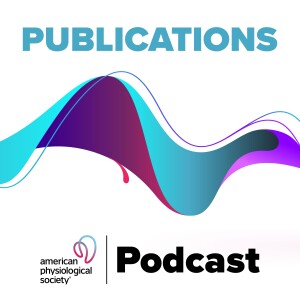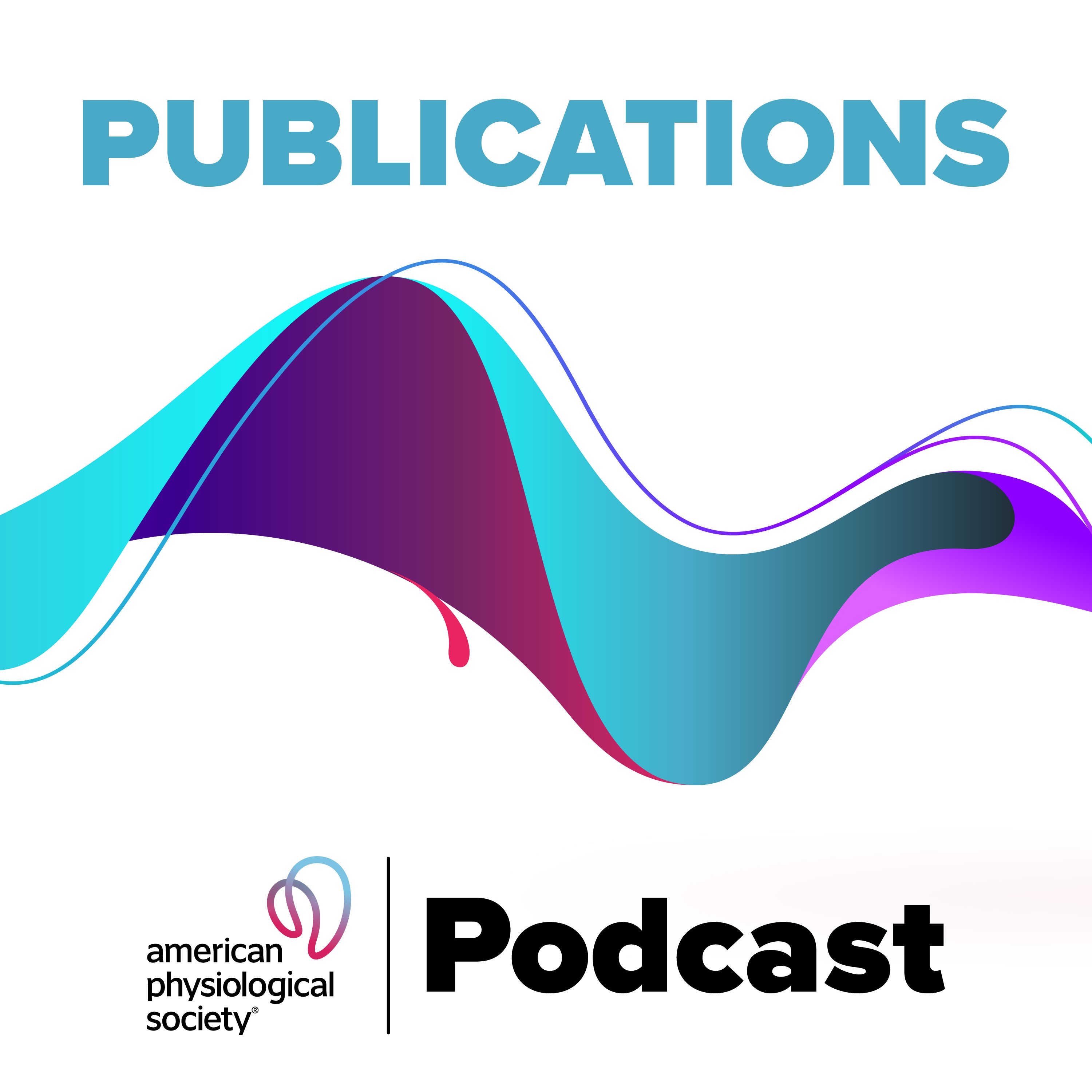Episodes

Monday Jul 14, 2025
Monday Jul 14, 2025
In this episode of The APS Publications Podcast, featuring Advances in Physiology Education, coauthor Katelyn Cooper highlights the meeting reports titled “Meeting report: an interdisciplinary approach to addressing anxiety in undergraduate active learning biology courses.” She explains that anxiety is a common emotional condition marked by feelings of tension, worry, and physical symptoms like restlessness and fatigue. Among college students, anxiety is the most reported mental health concern and is linked to lower motivation, engagement, and academic performance. Biology students may be particularly affected due to the rigor and competitiveness of their courses, with high anxiety levels contributing to reduced academic success and increased attrition in the field.
Katelyn M. Cooper, Sara E. Brownell, Elisabeth E. Schussler, Virginia R. Downing, Logan E. Gin, Kelly K. McDonald, Randolph M. Nesse, Carly A. Busch, Benjamin J. England, LaToya Grigler, Samantha A. Maas, Marco Molinaro, Nicole L. Nieset, Amy L. Pate, Jed Rasmussen, Jessica L. Schleider, Amina Y. Simmons, Shawn L. Spurgeon, Cynthia M. Stonnington, and Michael Trobiano
Advances in Physiology Education 2025 49:2, 405-415

Friday Jul 11, 2025
Uncovering Heightened Cardiovascular Reflexes in Chronic Kidney Disease
Friday Jul 11, 2025
Friday Jul 11, 2025
In this episode of The APS Publications Podcast, corresponding author Han-Kyul Kim provides an overview of the study titled "Exercise pressor reflex function is augmented in rats with chronic kidney disease," recently published in AJP–Regulatory, Integrative and Comparative Physiology. Dr. Kim discusses how the research team uncovered exaggerated blood pressure responses triggered by the exercise pressor reflex (EPR) in a chronic kidney disease (CKD) animal model. The study highlights how both the muscle mechanoreflex, activated through passive stretch and the muscle metaboreflex, stimulated by intra-arterial capsaicin, contribute to this hypertensive effect. Tune in to learn more about how sympathetic overactivation and altered reflex function could play a key role in cardiovascular risk for individuals with CKD.
American Journal of Physiology-Regulatory, Integrative and Comparative Physiology 2025 328:4, R460-R469

Tuesday Jul 01, 2025
Tuesday Jul 01, 2025
In this episode of The APS Publications Podcast, featuring Advances in Physiology Education, coauthors Jynx Pigart, Tasneem Mohammed, and Katelyn Cooper discuss their study, “Premed pressure: examining whether premed students experience more academic stress compared to non-premeds.” Their research investigates the common perception that premedical students experience higher levels of academic stress than their non-premed peers. The findings revealed no statistically significant differences in reported academic stress between the two groups. However, the study did show that students with lower GPAs were significantly more likely to leave the premed track than those with higher GPAs.
Jynx Pigart, Tasneem F. Mohammed, Theresa Acuña, Shurelia Baltazar, Connor Bean, Michayla Hart, Katelyn Huizenga, Amaris James, Hayleigh Shaw, Kimberly Zsuffa, Carly A. Busch, and Katelyn M. Cooper
Advances in Physiology Education 2025 49:2, 280-290

Friday Jun 06, 2025
Friday Jun 06, 2025
In this episode of The APS Publications Podcast, we hear from coauthor Casey G. Turner about the study, "Oral contraceptive pill phase alters mechanisms contributing to cutaneous microvascular function in response to local heating." Published in AJP–Regulatory, Integrative and Comparative Physiology, this study investigates the effect of OCP phase on in vivo microvascular endothelium-dependent vasodilation and explores underlying mechanisms. Present findings suggest OCP phase does not affect overall microvascular endothelium-dependent dilation but does affect the underlying mechanisms. In women using OCP, there is a robust reliance on EDHF pathways and the COX pathway moderates basal microvascular blood flow and demonstrates a phase-dependent restraint of the NO pathway.
American Journal of Physiology-Regulatory, Integrative and Comparative Physiology 2025 328:3, R374-R385

Monday Jun 02, 2025
Monday Jun 02, 2025
In this episode of The APS Publications Podcast, featuring Advances in Physiology Education. The authors present their study on the Indonesian Medical Physiology Olympiad (IMPhO). This article outlines key strategies for building a successful team in a physiology competition, including effective use of resources, mentorship, teamwork, and faculty guidance. These approaches not only enhance performance in competitive settings but can also be adapted to strengthen study techniques for medical students.
Advances in Physiology Education 2025 49:2, 352-355

Tuesday May 20, 2025
Tuesday May 20, 2025
In this episode of The APS Publications Podcast, featuring Advances in Physiology Education, we hear from Dr. Himel Mondal about his recently published paper entitled “Evolving resource use for self-directed learning in physiology among first-year medical students in a classroom setting.” This study reports a shift in educational resource use for self-directed learning (SDL) among medical students after introduction of large language model (LLM) chatbots. Students use multiple sources, with digital tools like search engines and LLM chatbots nearly matching each other as the most preferred resources. Despite the accessibility and efficiency of digital tools, traditional resources like textbooks remain relevant, though less frequently chosen.
Himel Mondal
Advances in Physiology Education 2025 49:2, 394-397

Wednesday May 14, 2025
Differentially Expressed Adipose Genes with Obesity
Wednesday May 14, 2025
Wednesday May 14, 2025
In this episode of the APS Publications Podcast, featuring Physiological Genomics, join coauthors Ibra Fancher and Malak Alradi as they discuss, “A long-term high-fat diet induces differential gene expression changes in spatially distinct adipose tissue of male mice.” This study explores how a long-term high fat diet affects gene expression in visceral adipose tissue (VAT) and subcutaneous adipose tissue (SAT) in male mice.
A long-term high fat diet induces differential gene expression changes in spatially distinct adipose tissue of male mice.
Malak Alradi, Hassan Askari, Mark Shaw, Jaysheel D. Bhavsar, Brewster F. Kingham, Shawn W. Polson, and Ibra S. Fancher
Physiological Genomics 2024 Dec 1;56(12):819-832. https://doi.org/10.1152/physiolgenomics.00080.2024

Friday Apr 25, 2025
Students Utilize Various Locations for Assignment Deadlines
Friday Apr 25, 2025
Friday Apr 25, 2025
In this episode of The APS Publications Podcast, featuring Advances in Physiology Education coauthor Patricia Halpin highlights the article titled "Students bypass the syllabus to utilize alternate LMS locations for assignment deadlines." Dr. Halpin highlights how the growing use of learning management systems (LMSs) has changed how students access course information—often leading them to overlook the syllabus entirely. This shift can result in confusion and missed deadlines due to reliance on inconsistent LMS postings. Tune in as she explores why it’s more important than ever for faculty to reintroduce the syllabus on day one and clearly communicate where students should go for the most accurate course information.
Advances in Physiology Education 2024 48:3, 588-592

